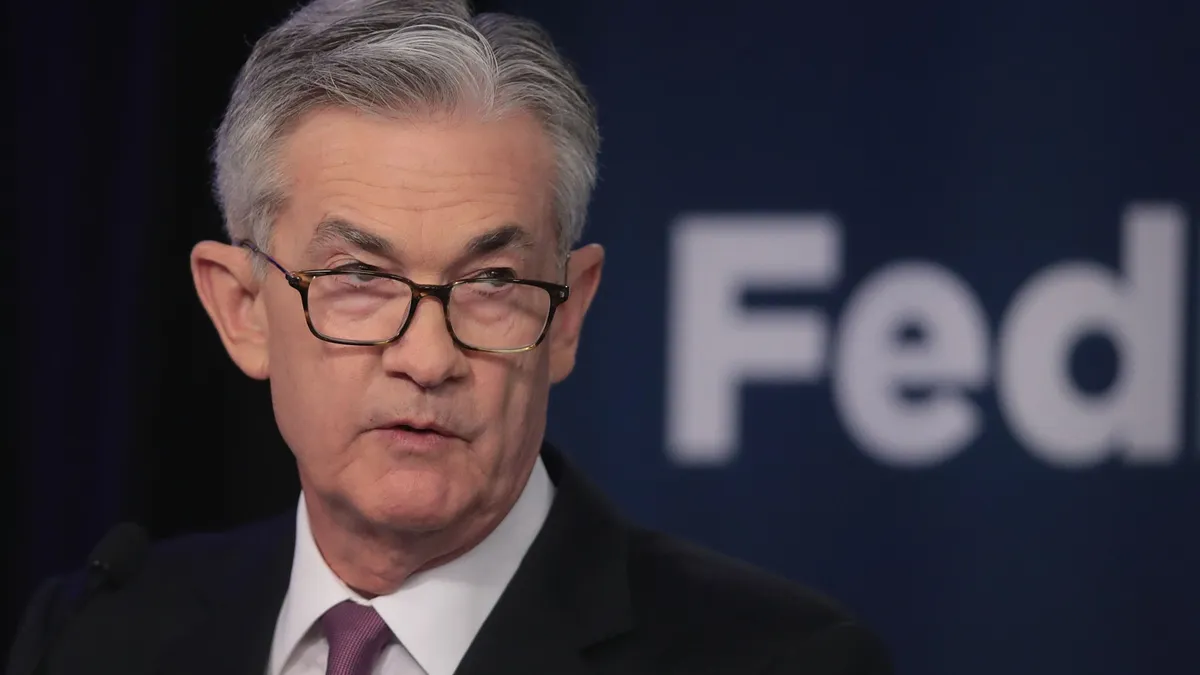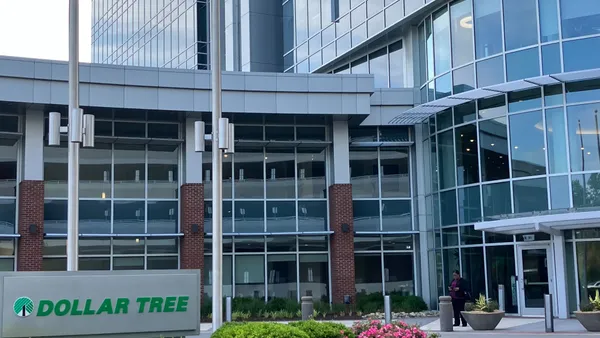Dive Brief:
- The Federal Reserve on Thursday trimmed the benchmark interest rate by a quarter percentage point to a range between 4.5% and 4.75%, citing a softening labor market and progress in slowing inflation toward its 2% goal.
- “The committee judges that the risks to achieving its employment and inflation goals are roughly in balance,” the policy-setting Federal Open Market Committee said in a statement after a two-day meeting. The unanimous decision followed a half-percentage-point cut in September that prompted a lone dissent.
- “We continue to be confident that with an appropriate recalibration of our policy stance, strength in the economy and the labor market can be maintained with inflation moving sustainability down to 2%,” Fed Chair Jerome Powell said at a press conference after release of the FOMC statement.
Dive Insight:
The reduction in borrowing costs came just two days after a general election in which Donald Trump won a second term as president. His return to the White House heralds likely shifts in U.S. economic policy that may fuel inflation and influence coming FOMC decisions.
Trump during the campaign promised to cut a variety of taxes, a move that would fuel economic growth and likely increase price pressures. He also pledged to impose tariffs on all imported goods by between 10% to 20%, with levies on goods from China as high as 60%.
Both policy changes may complicate efforts by the Fed to curb inflation to its 2% goal from more than 9% two years ago.
Wall Street traders and economists believe that the risk of higher inflationary pressures may prompt the Fed to cut borrowing costs slower than expected before the election.
“Mr. Trump’s win slams the door on rapid Fed normalization next year,” Samuel Tombs, chief U.S. economist at Pantheon Macroeconomics, said Thursday in a note to clients.
Levies on imported goods may prove especially inflationary, Tombs said. Trump’s “proposed tariffs threaten to snatch defeat from the jaws of victory in the battle of returning core personal consumption expenditures price index inflation to the 2% target.”
Central bank officials, based on the median of their projections at their meeting in September, forecast that they will trim the federal funds rate to 4.4% by December and to 3.4% by the end of next year.
Powell said that over the short term the election will have no impact on monetary policy.
“We don’t know what the timing and substance of any policy changes will be” Powell said, adding “we therefore don’t know what the effects on the economy would be.”
“We don’t guess, we don’t speculate and we don’t assume,” he said, declining to comment on the election outcome.
Central bank officials believe that the economy and monetary policy “are both in a very good place,” Powell said.
GDP grew at annual rates of 1.4% in the first quarter, 3% in Q2 and 2.8% in Q3, according to the Bureau of Economic Analysis.
During the current quarter, the economy will likely expand at a 2.5% annual rate, according to a forecast by the Atlanta Fed released Thursday.
“This is a strong economy,” Powell said.
“It’s actually remarkable how well the U.S. economy has been performing, with strong growth, a strong labor market, and inflation coming down,” he said. “We’re really performing better than any of our global peers, and I think that is reflected in what you hear, from what I hear, from CEOs.”
Powell said in response to a reporter’s question that President Trump would not have the authority to demote him or any other governor.
Such a move by a president is “not permitted under the law,” Powell said.
During his first term as president, Trump often criticized monetary policy on social media.
If asked by Trump to resign, Powell said that he would not do so. His term leading the Fed expires in May 2026.















